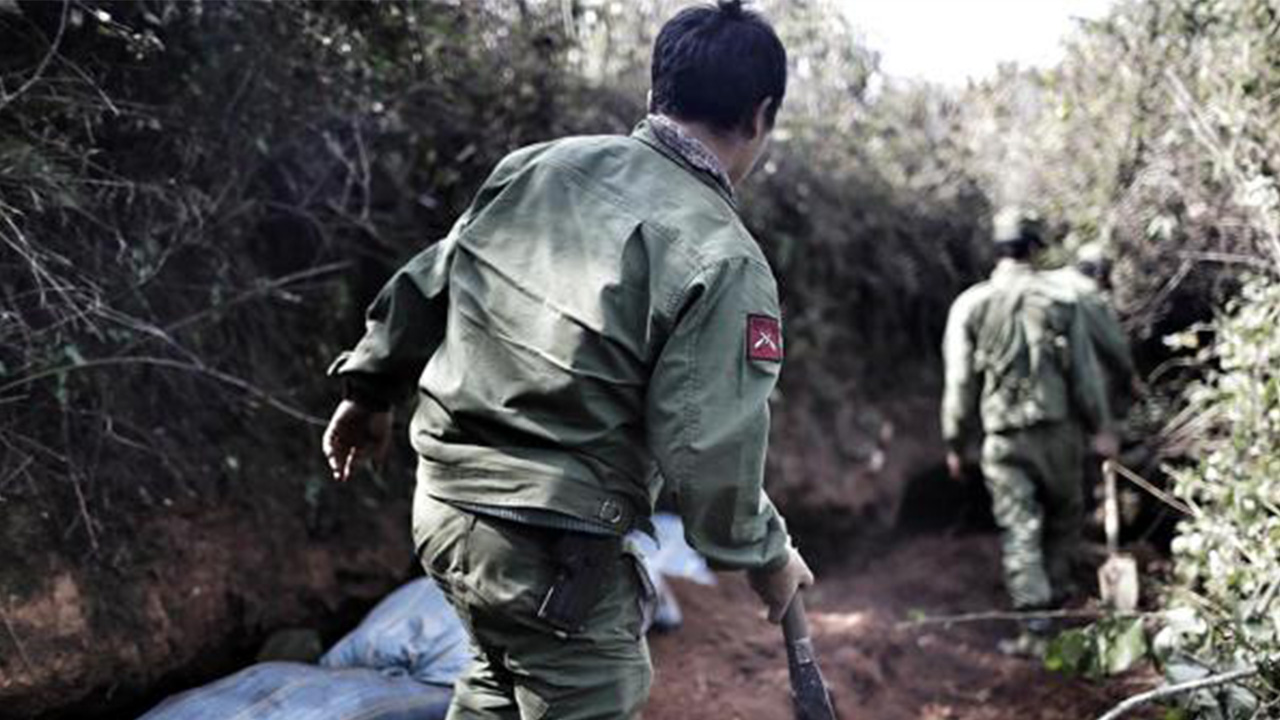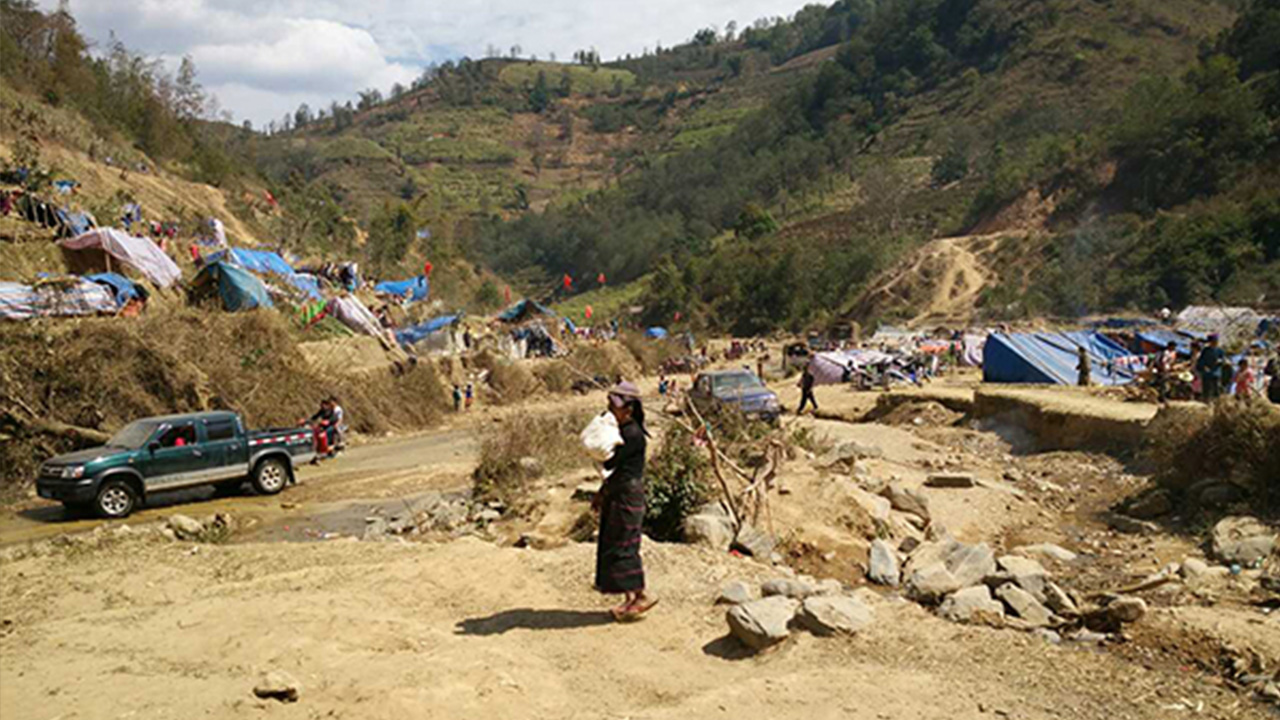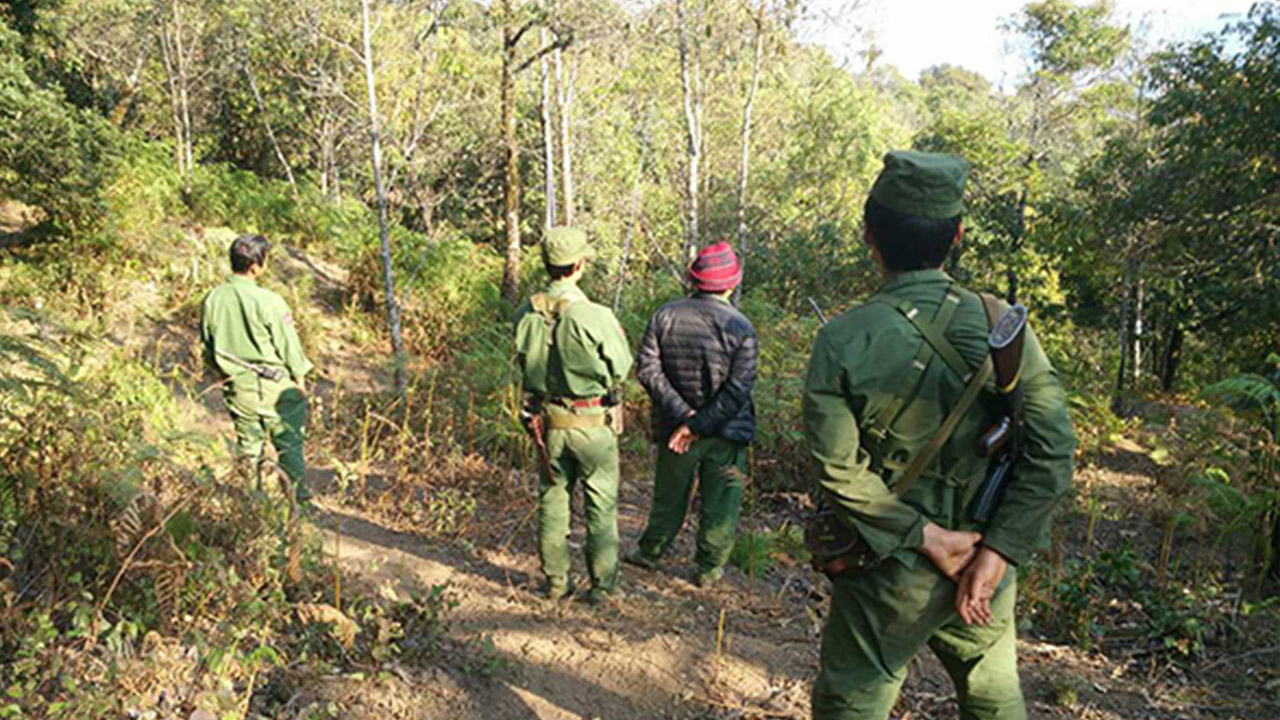Editor’s note: Four Chinese died and nine injured last Friday by a bomb fell from a Myanmar aircraft amid a heavy conflict in the Kokang region bordering China. Clashes have intensified since February between Myanmar’s military and rebel fighters known as the Myanmar National Democratic Alliance Army (MNDAA) who were trying to retake the control of Kokang in north-eastern Myanmar.
SISU 2012 alumnus Huang Ao, ThePaper.cn’s international journalist, travelled to the North Myanmar (formerly known as Burma) with his colleagues to report on that area’s conflicts and life since March this year. Their reports were posted on ThePaper.cn’s website (www.thepaper.cn) and the SISU’s WeChat journal.
BORDER CROSS
Based on the experience obtained from visiting the Kokang region, Huang Ao and his colleagues have concerned over the situation of Myanmar refugees in border areas.
Since the conflict broke out, some 60,000 Myanmar residents have moved straight across the border into China to escape the fighting. For the poverty-stricken majority, escape meant a journey of tens of kilometres in the mountain area. Shortly after arriving, they began raising flags of Chinese on every emergency camp on the Chinese side of the border.
Yang Laowu, a 14-year-old boy from Kangkong, has lived over a month in makeshift shelters around Maidihe based along the Sino-Burma border. He and his family are sheltering under tarpaulin structures on the plateau where temperatures at night can fall below freezing with the wind-blown sand all over the sky in the early spring.
“I really want to go home, but I don’t know when I will be able to,” rugged Yang told ThePaper.cn with the innocent smile.
'DEAD CITY': LAOKAI
Laokai, where gambling is the pillar of the economy, is only 8 kilometres from Nansan town of Yunnan province. One Kokang resident said that unrest is an added burden, on top of good climate for developing Myanmar during the last two years.
“From Lincang, a city in Yunnan province, to Nansan town, gamblers have to pay 700 yuan to sit on a chartered mountain car bumped for four hours. Before the war, we can earn 200,000 yuan a month from chartered services,” taxi driver Li Wei told ThePaper.cn.
Laokai is now a “dead city”, a synonym of terror for the local.
At town Nansan, Zhang Damin showed ThePaper.cn journalists the bullet wounds on his shoulder blades shot in a drive-by shooting in Kaokai. He broke down when he recalled how close he came to dying.
“A bullet was flying over my head in a heavy street battle, which is the fiercest fighting I’ve ever seen between MNDAA and Myanmar’s military,” he said, “the war brought people only disaster.”
Questionable shootings of civilians by Myanmar troops made Laokai become a forbidding area.
The Myanmar government has said two border crossings in the Kokang region are open since 6th of this month. Some Kokang refugees who crossed the border to evade gunfire were starting to return home. Official government statistics claim that 2,746 Kokang refugees are back in Laokai, with the situation tending towards stability.
Some youth like Li Daming are worried about being suspected by the government of collaborating with rebels after going back.
He said: “I even dare not go home. If in doubt, it is hard to clear my name of suspicion.”
The streets were deserted without a soldier outside and many stores were closed with remained craters and bullet holes.
“The government troops are monitoring all vehicles into Laokai. If they find someone does camera shooting, they will shoot,” one local said. However, this could not be confirmed by ThePaper.cn journalists in person.
CONFLICT REVIEW
The violence is believed to be triggered from 9 February, 2015 by the return of rebel leader Pheung Kya-Shin, who had been forced to exile since 2009. Myanmar President Thein Sein has handed power in the Kokang area over to the military and imposed a three-month period of martial law since 17 February, 2015. This was followed by more intense fighting between the army and ethnic-minority rebels who are now determined to regain control of Kokang. This conflict is the most serious since 2009, leading to nearly 100 deaths and injuries of both sides.
Myanmar troops have sent more than two armoured divisions into Laokai, the capital of the Kokang region, and took over the Lashio airport nearest to Laukkai.
A bomb fell from a Myanmar aircraft onto a field in Yunnan province last Friday, killing four people and wounding nine. China has lodged an official protest with Myanmar's ambassador to China that evening. The foreign and defence ministries of both nations were in contact over the incident.
There is too much shared interest for Beijing and Nay Pyi Taw to fall out completely, but events along the border near Kokang are putting the relationship under ever increasing strain. In the press conference of the National People’s Congress on 8 February, 2015, Chinese Foreign Minister Wang Yi said that Chinese authorities have stepped up border controls and called for an end to the fighting.
Myanmar will organize a referendum in May on changing the constitution and hold a general election in October this year aimed at promoting political change.







